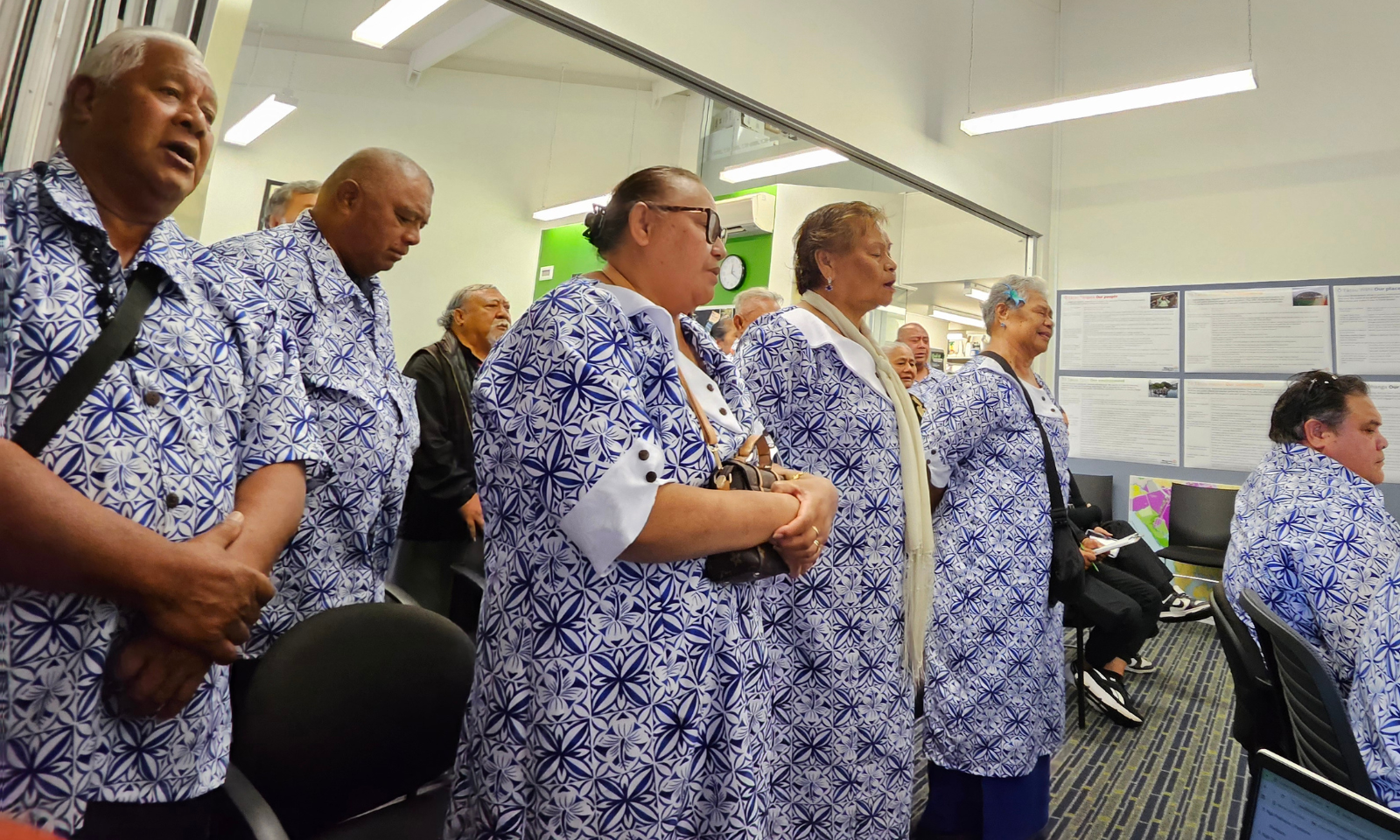Freezing workers from the Cook Islands will be nearing the end of a season that’s helped put money back in their pockets when work back home dried up due to Covid-19. As some head home and borders open, some are contemplating whether to come back next year
An autumn Sunday in Invercargill and freezing workers from the Cook Islands are meeting in a local hall to get an update from their managers.
Most have been here since February to work for the Alliance group, the southland based cooperative freezing works which runs two plants in Southland.
“It’s good, Alliance is treating us good… cold, cold as… but nah, it’s pretty good,” says one worker
“It’s good… love it, the atmosphere is nice here,” says worker William Utia.
“It’s hard for a bit… the first couple of weeks but then later on time just flies.”
This event’s also been organised for workers to socialise, to meet the local Cook Islands community and even to get to know each other.
“This kind of reminds us of home, coming here is like we never left home; I really am surprised on how much islanders in this part of New Zealand,” Utia says.
Youngster, Edward Tepake Williams welcomed the opportunity to meet fellow workers.
“It’s good to meet new friends, like we seen each other in Raro but we don’t usually speak to one another and then now that we’ve come here… some of us stay together and like we get to mingle and know each other and laugh a lot.”
Around 120 Cook Islanders were brought to the region when the one-way bubble opened at the start of 2021. The workers were split between the Alliance’s Lorneville plant just outside Invercargill and its plant in Mataura about 45minutes drive north.
Many at Lorneville will start heading back to the islands soon while those at Mataura will remain until August.
Mataura plant production manager Tere Ngu says the workers adapted well.
“The first two or three weeks, a couple of them had a little cough and a little flu, which is to be expected. The climate is completely different to back home,” he says.
“The odd occasion, with Covid regulations, they couldn’t come to work which actually disappointed them really but once they cleared up their flus and things, they’ve adapted really well into the work force.”
The man responsible for recruiting the current crop of workers is Cook Islander Nia Petero. Already an old hand in Mataura, he says the job is tough but it can be rewarding.
“These boys are straight out of the taro plantation and pretty much into New Zealand style living,” he says.
“We’ve got to teach them all this and trying to teach them budgeting because it’s a big amount of money from what we’re used to.
“It’s not for everyone. Some have returned home missing loved ones; a lot of them were home sick. You know our Island people; we miss our families and our food and we can only do so much.”
Petero says, they continue to help the workers settle in and reminded them of why they’re here – to send money home to their families.
Cook Islanders have a history of work in the region. Many were recruited in the 1970s and ‘80s to work at the Ocean Beach freezing works in bluff. Some of the Mataura plant senior remember what that community brought to the region.
“I guess they bring a sense of culture to the community, you know they’re playing for the local rugby team,” says Senior Supervisor Steven Turanga-Konui.
“There are people from the Cook Islands (here) their birth rights are there but they’ve lived here. They’ve actually represented the Cook Islands in sheep shearing. The Cook Islands champions actually come from Mataura but they have been here all their lives and their heritage goes back to the Cook Islands.”
Around 37 recruits work in Mataura. They share an accommodation which has helped them fit in, especially for the younger members.
“I’m loving it, it’s awesome and loving the company around here. All the staff around here are pretty good, they’re amazing to me. I’ve learnt a lot from them and hopefully I can pick up more skills in the future,” says Clayton Mani
“I would say it was a good experience. First time to come down here; pretty cold, enjoyed it very much. Wouldn’t mind coming back for the next season,” says Santa Manga.
With the season nearly over planning is starting for the next one. Alliance managers say they will need at least 160 workers to spread across the two Southland plants and possibly an extra one in Nelson. In the meantime, some of the younger recruits are looking forward to heading home.
“It’s pretty challenging not having your parents or your siblings there,” says Edward Tepake Nga.
“It makes you feel like you’re homesick like you don’t have bond with your family anymore. We need to learn to live without them.
“I kind of miss home; feeling homesick, missing the sun, the heat… everything.”
Written by John Utanga
Reporting by Moana Makapelu Lee











